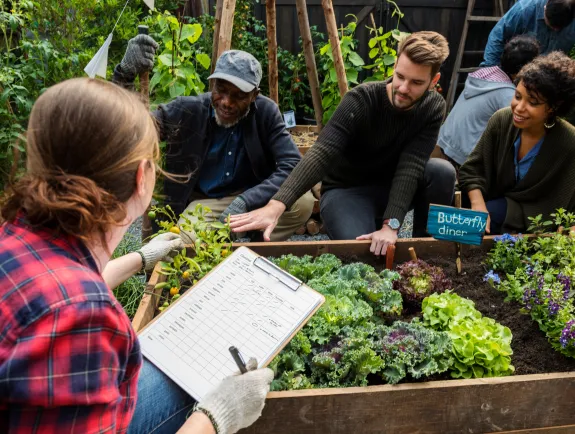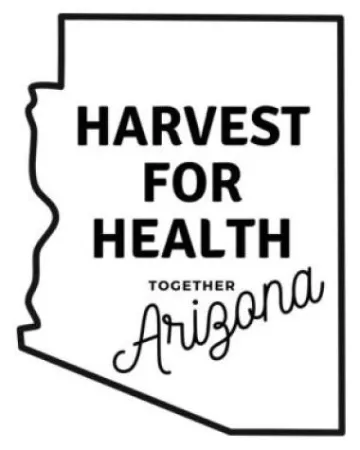
Healthy Harvesters
Goals
Melanoma accounts for nearly 10% of all incident cancer cases in Arizona. While UV overexposure is the primary modifiable risk factor, obesity is also associated with increased melanoma risk and worse melanoma outcomes. Melanoma survivors are at an increased risk for second primary colorectal, breast, or prostate cancer diagnosis. Adherence to current diet and physical activity recommendations may alleviate the consequences of cancer treatment and is associated with lower cancer mortality. Current recommendations for melanoma prevention and survivorship include maintaining a healthy weight, being physically active, and eating a healthy diet – yet population adherence remains low. Interventions to promote adherence are essentially non-existent for melanoma survivors and many melanoma survivors do not change their activities after treatment. As such, there is a need for tailored programs targeting synergistic cancer preventive behaviors to objectively measure personal UV exposure and programs to promote healthy lifestyles.
We suggest developing a program geared towards health and community resilience through community gardening. This VIP program directly looks at the links between health and the urban and natural environments, as we work to improve the quality of life for many Arizonans. Harvest for Health, a mentored gardening program for breast cancer survivors in Alabama demonstrated high acceptability and retention as well as increased vegetable and fruit accessibility and consumption, improved physical health, and enhanced social support. Application of wearable UV sensors to monitor and provide just-in-time feedback of UV exposure may be an effective strategy to reduce sunburns and improve sun-protective behaviors for melanoma survivors in community gardening through Harvest for Health Together Arizona (H4H2-AZ). To our knowledge, this is the first study designed to improve supportive cancer care by integrating melanoma patients with existing community gardening networks and including wearable UV sensors and just-in-time feedback to evaluate impact on cancer preventive health behaviors (including diet, physical activity, energy balance, and UV protection).
Issues Involved or Addressed
- Community-based participatory research (CBPR)
- Environmental and social justice
- Wearable technology/sensors
- Mixed-methods
- Cancer prevention and control
- Health promotion/Public health
- Diet/nutrition
- Physical activity/exercise
- Health science
- Community gardening
- Sustainability
Methods and Tech
- Environmental Scans
- Community based participatory research
- Harvest Yield
- Intervention/Human subjects research
- Sensor data analytics
- Education
- Program evaluation
- Behavioral assessment
- Qualitative Survey development
- Semi-structured interviews
- Qualitative data analysis
Academic Majors of Interest
- Engineering
- Nursing
- Honors
- Public Health
- Nutrition and Wellness
- Anthropology
- Pre-Med
Preferred Interests and Preparation
- Highly motivated, hardworking, dedicated student that desires to take initiative with minimum supervision
- Excellent time management, organizational and interpersonal skills
- Ability to collaborate and maintain relationships with various offices and programs on campus, as well as in the community
- Possess high level of communication skills, both oral and written and comfort with speaking with participants via telephone
- Strong interest in clinical research, behavioral assessment, environmental health, participatory research, and/or data management and analysis
- Excellent analytical and interpretation skills
- Proficiency in Word, Excel and PowerPoint
- Transportation to community sites required
- Bilingual English/Spanish preferred


